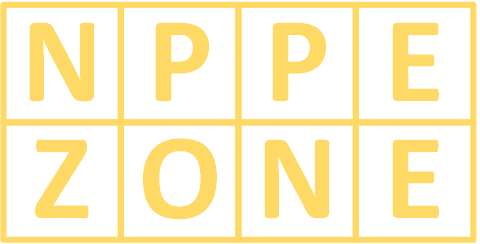As an aspiring engineer, you may have heard of “NPPE” but may not quite understand or know what it is. Don’t worry; in this blog post, we’ll cover everything you need to know about the National Professional Practice Examination, including its goals, purpose and significance. Learn more by continuing to read!
What is the NPPE for?
The National Professional Practice Examination is referred to as NPPE. A candidate’s knowledge of the ethical and legal obligations of professional engineers in Canada is evaluated by a computer-based exam. In all provinces and territories with the exception of Quebec, the exam is administered by the Canadian Council of Professional Engineers (CCPE) and is necessary for licensure.
Knowledge of professionalism, law, and ethics is validated by the National Professional Practice Examination (NPPE). The NPPE is now utilized by eleven engineering and geoscience self-regulatory bodies in Canada. The NPPE adheres to all pertinent requirements outlined in the Standards for Educational and Psychological Testing to guarantee the validity, reliability, and fairness of the exam programme (psychometrically defensible).
Anyone seeking to become a licensed professional engineer in Canada must pass the NPPE test. It is recommended to refresh and sharpen your knowledge of fundamental engineering principles and engineering ethics if you intend to take the NPPE.
Examination Contents
There are two sections of the NPPE. One’s understanding of fundamental engineering concepts is tested in Part A, which consists of 100 multiple-choice questions, while one’s ability to apply those concepts in real-world situations is tested in Part B, which consists of 10 case studies.
Candidates have three hours to finish the exam, and they need a score of 65% or above to succeed. The NPPE is available in both English and French, and candidates may select the language in which they wish to take the test.
Since the NPPE is criterion-referenced, psychometric techniques were employed to establish a passing score that reflects a minimum level of competency. To pass, you must receive an equivalent score of 65 or higher. No comprehensive score report will be given if you passed the test. Depending on how many operational (scored) questions you answered correctly (1 point for each correct response), you will either pass or fail the exam. For inaccurate responses, there is no consequence. In order to maintain fairness for all candidates taking tests, statistical equating makes sure that changes in exam difficulty from each session are taken into consideration.
Why is it important?
An engineering society that oversees professional engineering and geoscience practices in Alberta is the Association of Professional Engineers and Geoscientists of Alberta (APEGA).
Before being granted a license to practice in Alberta, all candidates for professional membership (licensee, professional licensee, professional engineer, or professional geoscientist) must successfully complete the NPPE. Although registration is only open once your application has been filed, you are not required to have already passed the exam before beginning your application. If you don’t attempt it within two years, your application will be withdrawn. If the NPPE is the last step in the licensing process for you, you have one year from the date of the BOE’s letter to complete it.
You will still need to take and pass the NPPE as part of your application to APEGA even if you have already passed a professional practice test other than the NPPE in another Canadian professional engineering or geoscience self-regulatory organization.
Exam Security
APEGA employs exam security investigative tools, such as statistical collusion identification and content theft patrols, to guarantee the validity of the NPPE. When applicants or Professional Members are thought to be cheating or stealing content, APEGA looks into their cases.
Theft of content and cheating include:
-copying exam answers from a different person
-collaborating with a fellow applicant to answer exam questions
-distributing test questions prior to, during, or after a test (memorizing, taking screenshots, etc.)
-sharing copyright sample questions for exams
Other than the questions for the practice tests, no NPPE exams have been made available to the public. Content theft has been used to obtain all copies of the NPPE that are currently in use. Cheating and content theft have negative effects:
-Exam results may not be disclosed.
-Your APEGA application can be declined.
-Professional Members may be subject to an investigation for improper behavior.
This examination is a determining factor of whether the APEGA deems a candidate fit to become a professional engineer.
